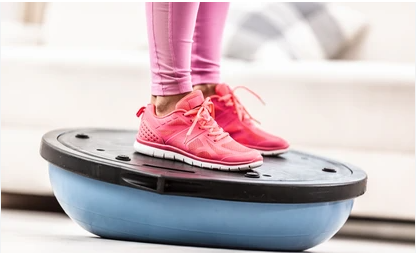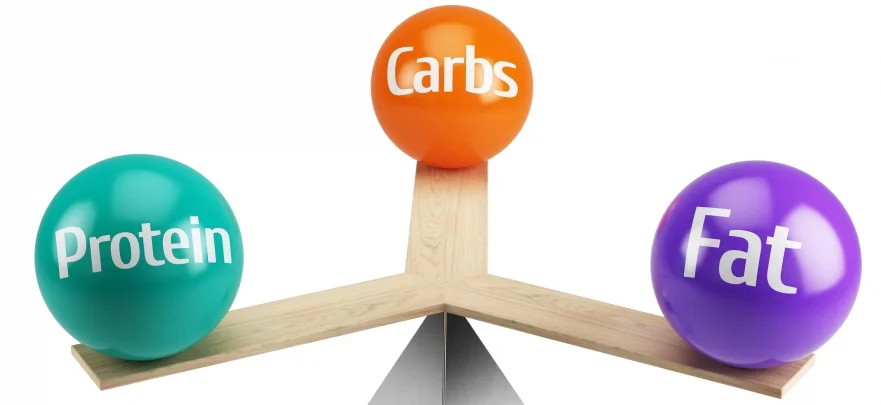Only 19% of Women Reported Being Physically Active Before Pregnancy.
An exhaustive study performed by the CDC and data from the Colorado Pregnancy Risk Assessment Monitoring System determined that only 19.1% of women were exercising before pregnancy, and that number drastically dropped to a staggering 10.2% during pregnancy.
We'll dive into the WHY, provide the science behind the exercise, and explore the benefits involved in making your pregnancy easier.
Labor and childbirth are a monumental events. It's the culmination of numerous months of pregnancy and preparation. After all that waiting, you may find yourself wondering how to have a faster labor and delivery. Here's our guide to having easier labor (and keeping up with yourself afterward).
As with many women, finding time to perform daily tasks and personal needs is already difficult without time spent in the gym or making their own meal plans. Personally, I'm WELL aware of the struggles that my fiancé finds in completing all the daily tasks she needs to accomplish, and I'm always amazed at how well she manages to exceed her own goals, let alone doing all that with 3 kids and myself (though she'd say I'm no burden).
Sarah's journey to motherhood began before the hospital, before the contractions, the picking out of baby clothes, and everything else involved. Her journey to motherhood began with making one decision: Exercising before pregnancy.
Many women (including Sarah) heard the horror stories of an excruciatingly long labor, from the back pain and overall aches that came with it, to the mental stress it caused. She decided to make an effort to bypass it all by setting herself up for success and preparing her body.
Exercising before pregnancy not only allows your body to be more adept at all the changes that will be happening, but it also affects every functional system in your body.
The muscular system, nervous system and skeletal system all play key roles in the regulation and movement of your body; thousands of changes are happening every time the body undergoes any form of physical activity.

Exercises, such as balancing movements, train the neurological system for future exercises, they train hand-eye coordination and even works muscles that are required to keep yourself upright. Every system of the body is engaged and working in concert to complete a task, and in turn, that individual is becoming more effective.
A recent article by Livestrong discusses the effect that exercise has on the brain and the results are unbelievable; and we are learning more each day.
In many studies, just walking briskly for 30 to 60 minutes, three to five times per week contributed to measurable brain improvements. Evidence does suggest that resistance training and aerobic exercise - walking, running, biking and swimming may help your brain more than stretching or yoga exercises do.
It's also been shown, that older adults with mild cognitive impairment who lifted weights two to three times a week improved muscle tone and cognitive function.
Your brain is amazing. Billions of nerve cells work together in harmony to coordinate every second of your life: your movements, behavior, thoughts, memories and emotions. While not only improving cognitive functions of the brain, we understand that regular exercise improves many different aspects.
- Feel Better. Walking and other moderate aerobic exercise has been shown to help stabilize your mood and help with depressive symptoms. Studies have also found that regular exercise helps people better control their stress and regulate their emotions.
- Enhance Learning. While scientists don't fully understand how physical activity contributes to learning, they're discovering that it works. In one study, when teachers added exercise routines to math lessons - called motor-enriched learning, math scores improved faster for the exercisers than for the kids who didn't exercise during the lesson. Other studies have found that exercise helps reading comprehension too.
- Sharpen Memory. Although brain size decreases as you age, research has shown that exercise can help reverse that - at any age. One study found that physical activity helped participants build measurable increases in the hippocampus, the part of the brain that enables you to create and store memories. Another study showed that people with better cardiovascular fitness as young adults had better memory, motor skills, and executive functions 25 years later as middle-aged adults.
- Improve Vision. When you exercise, you're stimulating the neurons in the part of your brain that helps you sort out and understand what you're seeing. Research has found evidence that your visual system becomes more sensitive during exercise and may actually enhance visual learning.
Now that we have covered some of the benefits that exercising before pregnancy has on the brain itself, Lets talk about what positive effects exercise has on PRE and early pregnancy.
Mood disturbances
During pregnancy are more common than mood disturbances after pregnancy (for example, postnatal depression), but both are significant concerns for pregnant women. One theory behind depressive symptoms in early pregnancy is that women seem to be especially concerned about their body image during this time.
One study on the effects of exercising before pregnancy, Effects of mood and pre-pregnancy exercise performed by the NIH, a government agency, concluded: " Exercises performed before and during pregnancy have a positive impact on the health of mother and child [37], regular physical activity also minimizes the risk of developing depression [38].
WHO recommends 150 min of moderate physical activity or 75 min of intense training per week [39]. Unfortunately, despite many positive recommendations and guidelines regarding physical activity during pregnancy, currently, less than 15% of pregnant women are physically active for a minimum of 150 min during the week."

Exercise Helps Prepare You For Childbirth:
Most studies suggest that the fitness level of the mother can result in shorter labor, fewer medical interventions and less exhaustion during labor.
While exercising before pregnancy and being in shape will not decrease the pain, but it definitely will help give you the endurance needed to get through labor. By maintaining your fitness level during pregnancy, you are less likely to gain excess weight. Exercise also maintains your muscle definition and strength.
Most experts agree that gaining more than the recommended 25 to 35 pounds (for a woman of normal weight) during pregnancy makes it harder to lose weight after the baby is born. Find a complete study here: Weight gain and pregnancy
In addition to an easier pregnancy, several studies have also shown that being active and exercising before pregnancy while keeping within the guidelines for weight can also reduce the risk of preterm birth and other serious conditions. Keeping not only a healthy mind, but a healthy body is of paramount importance to building a healthy and happy baby.
Furthermore, a breakthrough study performed by researchers from the Polytechnic University of Madrid and the University of Granada found that moderate-intensity exercise three times a week during the second and third trimesters of pregnancy cuts the risk of high birth weight and C-section delivery by half.
Led by Rubén Barakat, Alejandro Lucía and Jonatan Ruiz, the researchers ran a series of programmed training sessions for a sample of 510 sedentary pregnant women. They defined sedentary as exercising for less than 20 minutes and fewer than three times per week.
After randomly selecting an intervention grouping of the women, researchers had these women follow a 55-minute training program that included aerobic, muscle strength and flexibility exercises three days a week from 10-12 weeks of pregnancy until 38-39 weeks pregnant. The control group received standard recommendations for exercise and care.
The results showed that even though the 55-minute three-day-a week exercise training programs did not reduce gestational diabetes, it did reduce the risk of high birth weight and C-section delivery.
Researchers found that high birth weight was down by 58 percent and the risk of C-section delivery was down by 34 percent for the women involved in the training.
For many women, exercise aside, it can be tempting to fall back on the old “eating for two” excuse. However, maintaining a healthy weight is not only important for the health of you and your baby, but those who stay in shape tend to have shorter labors. Staying fit also improves endurance, helping you better tolerate labor.
While exercising before pregnancy plays a crucial role in better preparing the mother's body for labor and delivery, the food choices before and during play an almost equal role. Nutrition can be a very complex topic even for individuals that are not pregnant and have no plans to be. Simple takeaways can take most of the guesswork out.
Nutrition and Calories-
Calorie (aka energy for the body) needs increase during pregnancy. But “eating for two” only requires an additional 340 calories during the second trimester and 500 calories in the third trimester. The first trimester does not require any extra calories.
Choose foods and beverages that are “nutrient-dense”. This means that they are good sources of the building blocks your body needs. Nutrient-dense foods are full of vitamins, minerals and other nutrients. This will ensure that you and your baby are getting the nutrients you both need.
KEY ELEMENTS
PROTEIN:
Protein helps maintain muscle and body tissue. It is also key for a baby’s growth – especially during the second and third trimesters. Studies have shown that most pregnant women should take in about 1/2 - 3/4 gram per pound of their body weight in order for continued success throughout pregnancy.
Protein requirements vary based on weight and activity level. Lean meats, poultry, fish, eggs, dairy products, and legumes (beans) are good sources of protein. These foods also supply iron, B vitamins, and other important nutrients. Dried beans, lentils, nuts, and soy products like tofu are other good sources of protein.
If you are vegetarian, you can meet your protein needs by eating foods that are complete protein sources. A complete protein has all the essential “building blocks” (amino acids) your body needs. Each day, eat a variety of protein sources to provide your body with essential amino acids. Vegetarian protein options include beans, milk, yogurt, eggs and soy products. Greek yogurt is another great option. It has twice the amount of protein when compared to regular yogurt. Pregnant vegans are able to meet their protein needs from soy, a complete protein source.
Sources of soy protein include soy milk, soy cheese, soy yogurt, tofu, and tempeh. Examples of other protein-rich vegan foods are nuts and beans (red kidney beans, chickpeas, black beans, etc.).
CARBOHYDRATES:
Carbohydrates are the primary source of energy for the body. Fruits, vegetables, grains, and dairy products contain carbohydrates. Whole grains are an important source of nutrients, such as dietary fiber and they also provide a variety of health benefits.
Other important carbohydrate foods include enriched grains. These grains have the added benefit of iron and folic acid, two essential nutrients for the baby’s development. Many carbohydrate foods are great choices for breakfast. Including English muffins, yogurt, bagels, cereals, breads and fruits. Aim to get the majority of your daily calories from carbohydrates. For most people, carbohydrates should make up about 45 to 65 percent of their daily calorie intake. This number can fluctuate based on the physical activity of the mother, as well as total caloric needs.
FATS:
Fat is key for good nutrition, health and storage of many important vitamins. Like carbohydrates and protein, dietary fat is an important source of energy for the body. Certain foods that contain fat supply the body with essential fatty acids. Essential fatty acids are fats that the body does not make, so they should be included in the diet. Most importantly, essential fatty acids are critical for the baby’s growth and development.

In Conclusion:
Exercising before pregnancy has been shown to produce many positive effects for not only the mother but for the baby as well.
Better mood, easier pregnancy, and increased brain and oxygen activity are all things to look forward to following a simple exercise and eating plan in preparation.
Similarly, women who exercise through pregnancy show a significantly decreased risk of preeclampsia, hypertension, gestational diabetes mellitus (GDM), weight gain, rate of spontaneous abortion, congenital abnormalities and incidences of preterm labor.
We've listed and explored many benefits of exercise before pregnancy, and I hope that you will contact us for more information on how our fitness experts can assist you in your extraordinary journey.
